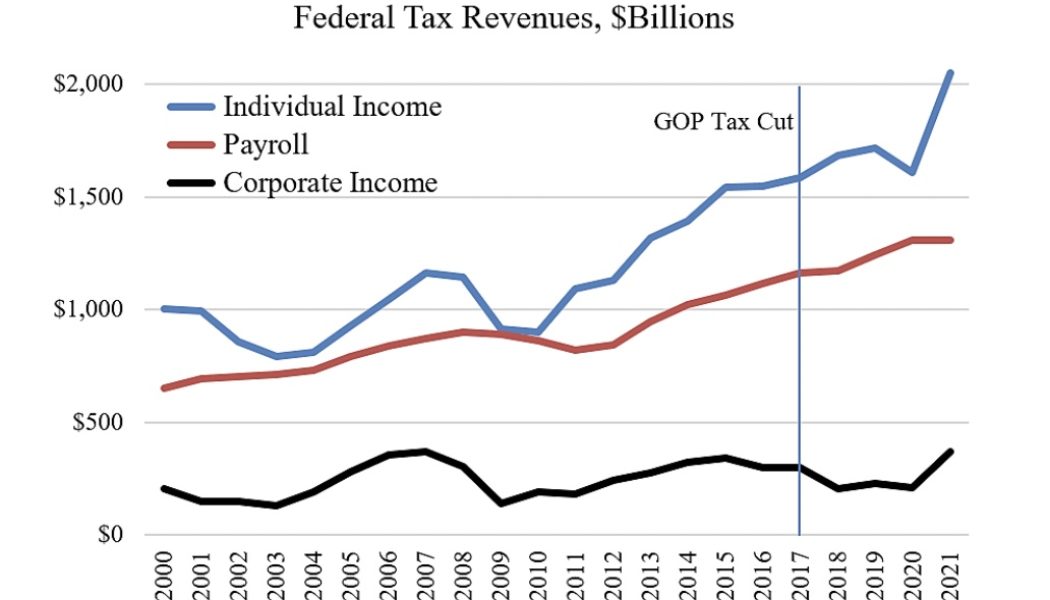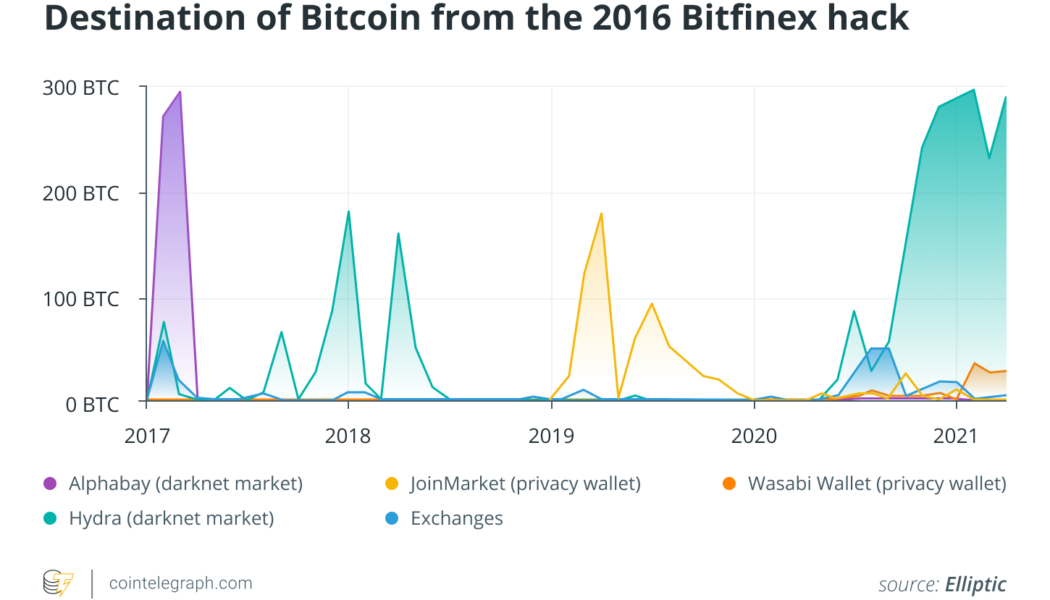IRS
The outcome of SBF’s prosecution could determine how the IRS treats your FTX losses
FTX founder Sam Bankman-Fried has received official criminal charges after the collapse of his cryptocurrency exchange, which is more than just a moral victory for the exchange’s roughly 1 million individual investors. While not locked in yet, things appear to be on track for these investors to take a more favorable tax position as SBF’s fate continues to unravel. What kinds of losses can FTX investors claim on their taxes? Earlier this fall, it appeared that assets lost in the FTX collapse would be considered a capital loss under the United States tax code for the tax year 2022. This capital loss can be used to offset capital gains. But in a year in which the crypto market took a beating as a whole, most investors will not have capital gains to offset in 2022. A capital loss can also be u...
IRS introduces broader ‘Digital Assets’ category ahead of 2022 tax year
American taxpayers will find a broader, more defined category encompassing cryptocurrencies and nonfungible tokens (NFTs) in their 2022 IRS tax forms. The draft bill released by the Internal Revenue Service features a well-defined Digital Assets section that outlines if and how taxpayers will account for the use of cryptocurrencies, stablecoins and NFTs. Page 16 of the draft defines Digital Assets as any digital representations of the value recorded on a ‘cryptographically secured distributed ledger or any similar technology.’ 2021’s tax form required taxpayers to indicate whether they had received, sold or exchanged in ‘virtual currency’ – with this term changing in the yet-to-issued 1040 tax form for 2022. Taxpayers are required to answer the Digital Assets s...
Tax on income you never earned? It’s possible after Ethereum’s Merge
After much buildup and preparation, the Ethereum Merge went smoothly this month. The next test will come during tax season. Cryptocurrency forks, such as Bitcoin Cash, have created headaches for investors and accountants alike in the past. While there has been progress, the United States Internal Revenue Service rules still weren’t ready for something like the Ethereum network upgrade. Nonetheless, there seems to be an interpretation of IRS rules that tax professionals and taxpayers can adopt to achieve simplicity and avoid unexpected tax bills. How Bitcoin Cash broke 2017 tax returns Because of a disagreement over block size, Bitcoin forked in 2017. Everyone who held Bitcoin received an equal amount of the new forked currency, Bitcoin Cash (BCH). But when they received it caused some issu...
Get ready for even more incompetence at the IRS in 2023
The Internal Revenue Service is hiring 87,000 new agents, but taxpayers will not feel the pain for another two to three years. That’s how long it will take the agency to hire and train agents. Few have discussed the extent of this pain. Still, it’s something to think about when you consider the majority of coming audits will be conducted by new agents, many of whom will have been hastily hired and operating with minimal supervision. Playing the audit lottery will not be smart in future tax years. Taxpayers should protect themselves now, especially when profiting from statutory gray areas — such as cryptocurrency staking, investing through decentralized autonomous organizations (DAOs) and other decentralized finance (DeFi) products. When I started my career in the mid-2000s, business audits...
Can the government track Bitcoin?
Apart from data analysis done alone or in cooperation with private companies, authorities may request information from centralized exchanges. Due to regulation, centralized exchanges may also be obligated to share such information. However, not all cryptocurrency exchanges collaborate with authorities. A centralized exchange is a cryptocurrency exchange that is run by a single entity, such as Coinbase. To become a licensed operator in a certain country or territory, centralized exchanges need to comply with regulations. For instance, to decrease cryptocurrency anonymity and the illicit use of cryptocurrencies, most centralized exchanges have incorporated Know Your Customer (KYC) checks. KYC is meant to verify customers’ identities alongside helping authorities to analyze activity...
Biden is hiring 87,000 new IRS agents — and they’re coming for you
The Inflation Reduction Act, signed into law this month by President Joe Biden, empowers the IRS with nearly $80 billion in new funds. The world’s most powerful tax collection agency is using the money to go on a hiring spree to fuel much tougher enforcement efforts. It is widely assumed that the audits will be brutal and widespread. Taxes start with tax returns, which must be signed under penalties of perjury. The Biden administration has said that the audits on steroids are for fat cats who have escaped having to pay their fair share for too long. The administration has suggested the IRS would perform no new audits on anyone making less than $400,000 annually. Republicans tried to include that in the law, but every Senate Democrat voted against the amendment, as well as IRS audit protect...
US govt delays enforcement of crypto broker reporting requirements: Report
The provision in the U.S. infrastructure bill signed into law in November, which will require financial institutions and crypto brokers to report additional information, could reportedly be delayed. According to a Wednesday report from Bloomberg, the United States Department of the Treasury and Internal Revenue Service may not be willing to enforce crypto brokers collecting information on certain transactions starting in January 2023, citing people familiar with the matter. The potential delay could reportedly affect billions of dollars related to capital gains taxes — the Biden administration’s budget for the government for the 2023 fiscal year previously estimated modifying the crypto tax rules could reduce the deficit by roughly $11 billion. Under the current infrastructure bill, Sectio...
How to navigate cryptocurrency tax implications amidst the CPA shortage
Cryptocurrency is a hot topic worldwide, especially with prices of Bitcoin (BTC), Ethereum (ETH) and other cryptocurrencies hitting higher thresholds and resulting in another banner year for investors. While the earnings look good on paper, one factor is often left to consider –– that is, crypto taxes. It is not uncommon for traders to take advantage of the constant fluctuations, buy the dip, sell the uptrend, and repeat it frequently. Unfortunately, each transaction is considered a taxable event, making the conversation about cryptocurrency taxes a daunting one. The impending crackdown on cryptocurrency taxation only spurs on the need to start the conversation. This crackdown is far from recent, with 2021 headlines of an IRS chief stating the country was losing trillions of dollars in unp...
Blockchain forensics is the trusted informant in crypto crime scene investigation
The seizure by the U.S. Department of Justice of $3.6 billion worth of Bitcoin (BTC) lost during the 2016 hack of Bitfinex’s cryptocurrency exchange has all the ingredients of a Hollywood film — eye-popping sums, colorful protagonists and crypto cloak-and-dagger — so much so that Netflix has already commissioned a docuseries. But, who are the unsung heroes in this action-packed thriller? Federal investigators from multiple agencies including the new National Cryptocurrency Enforcement Team have painstakingly followed the money trail to assemble the case. The Feds also seized the Colonial Pipeline ransoms paid in crypto, making headlines last year. The Internal Revenue Service (IRS) seized $3.5 billion worth of crypto in 2021 in non-tax investigations, according to the recently releas...
Seizure of Bitfinex funds is a reminder that crypto is no good for money launderers
As public understanding of how digital assets work becomes more nuanced along with the mainstreaming of crypto, the language of Bitcoin’s (BTC) “anonymity” gradually becomes a thing of the past. High-profile law enforcement operations such as the one that recently led to the U.S. government seizing some $3.6 billion worth of crypto are particularly instrumental in driving home the idea that assets whose transaction history is recorded on an open, distributed ledger are better described as “pseudonymous,” and that such a design is not particularly favorable for those wishing to get away with stolen funds. No matter how hard criminals try to obscure the movement of ill-gotten digital money, at some point in the transaction chain they are likely to invoke addresses to which personal details h...
US lawmakers reintroduce bill to stop IRS from taxing crypto transactions under $200
A bill previously introduced by Washington Representative Suzan DelBene aims to exempt crypto users from paying taxes on transactions under $200. According to a Tuesday draft of the Virtual Currency Tax Fairness Act of 2022, Washington Representative Suzan DelBene is seeking to amend the Internal Revenue Code of 1986 to exclude gains from certain personal transactions of virtual currency. If signed into law, the bill could stop the Internal Revenue Service, or IRS, from requiring U.S. filers to pay taxes on capital gains from crypto transactions of $200 or more. “Antiquated regulations around virtual currency do not take into account its potential for use in our daily lives, instead treating it more like a stock or ETF,” said DelBene. “Virtual currency has evolved rapidly in the past few y...
- 1
- 2























